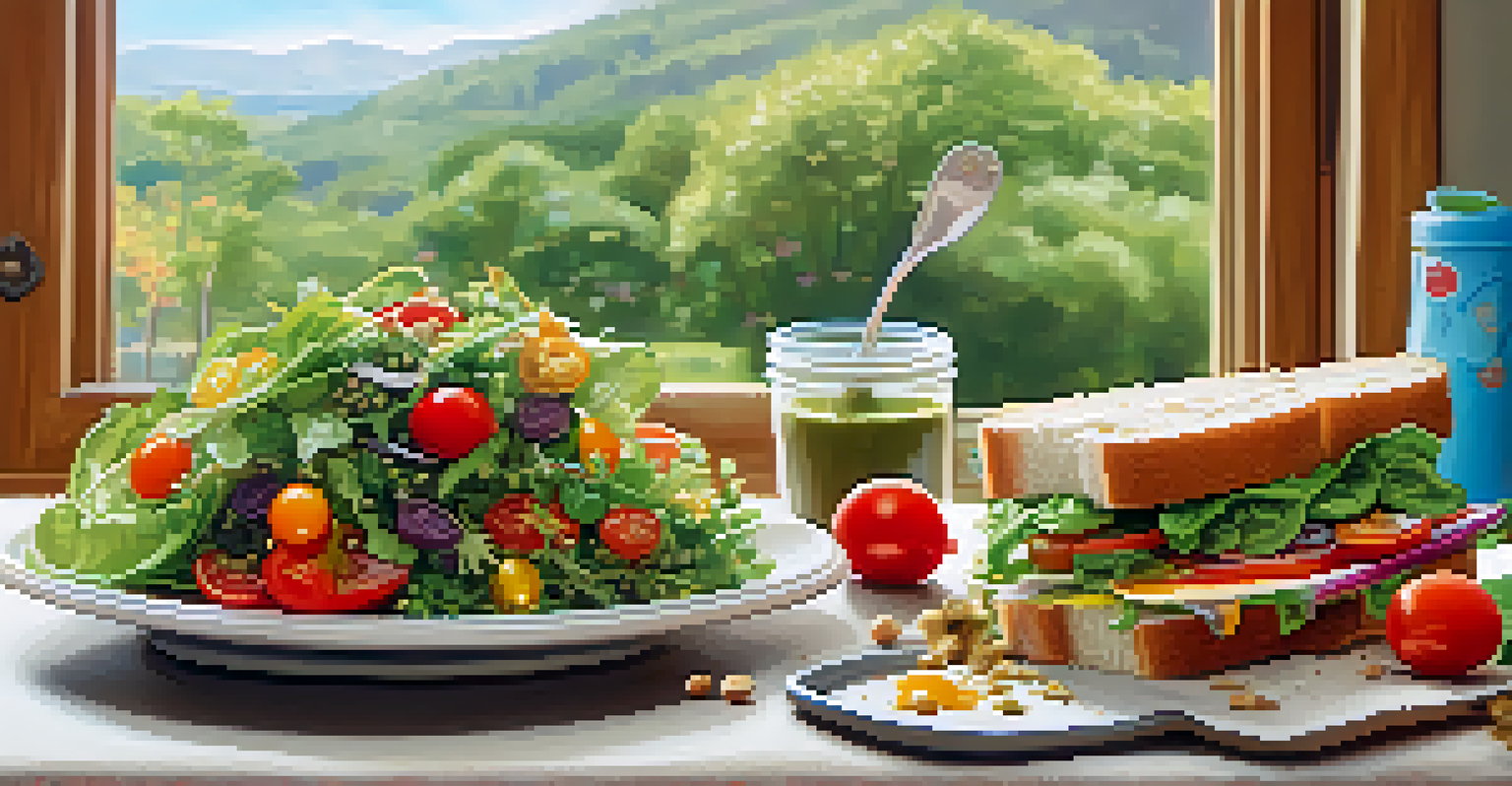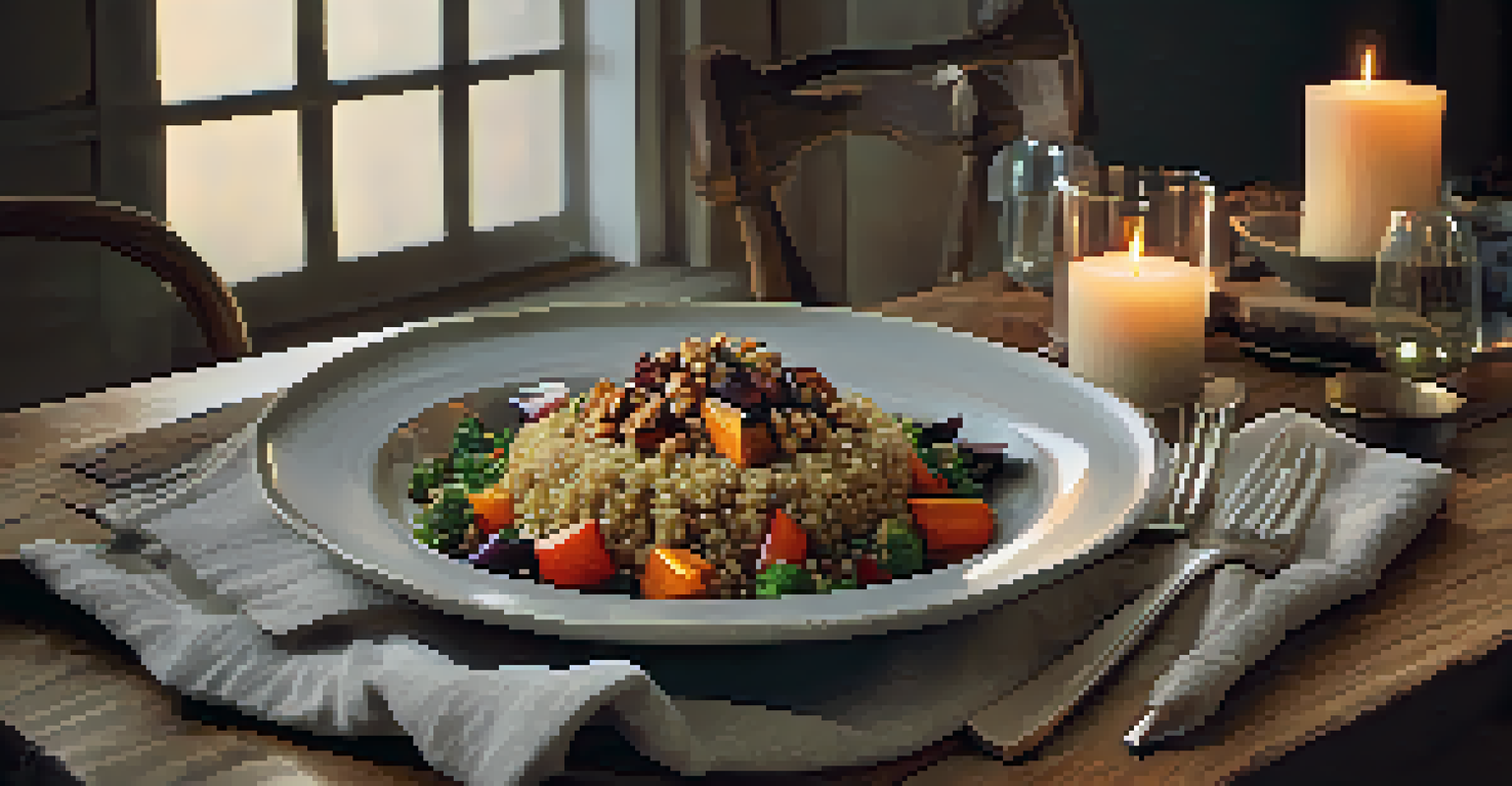Balancing Omega-3 Fatty Acids in Vegan Children's Diet

Understanding Omega-3 Fatty Acids and Their Importance
Omega-3 fatty acids are essential fats that our bodies cannot produce on their own, making it crucial to include them in our diets. They play a vital role in brain development, heart health, and reducing inflammation. For children, these benefits are particularly significant as their bodies and brains are still growing.
The food you eat can be either the safest and most powerful form of medicine or the slowest form of poison.
Often associated with fish, Omega-3s can also be found in plant-based sources, which is great news for vegan families. The three main types of Omega-3s are ALA, EPA, and DHA. While EPA and DHA are primarily found in fish, ALA is abundant in certain seeds and nuts, making it accessible for vegan diets.
Ensuring that children get enough Omega-3 can be challenging, but with a little planning, it’s entirely possible. By understanding where to find these nutrients, parents can confidently provide their children with a balanced diet that supports their growth and development.
Key Vegan Sources of Omega-3 Fatty Acids
There are several fantastic plant-based sources of Omega-3 fatty acids that can be incorporated into your child's diet. Flaxseeds, chia seeds, and walnuts are among the best producers of ALA, the plant-based Omega-3. Just a tablespoon of ground flaxseed or chia seeds can significantly boost your child's Omega-3 intake.

Another great source is hemp seeds, which can easily be sprinkled on salads or blended into smoothies. Seaweed and algae oils are also becoming popular vegan alternatives that supply both EPA and DHA, essential for brain health. These options are increasingly available in health food stores and can be a game-changer for vegan families.
Omega-3s are essential for kids
Omega-3 fatty acids are crucial for children's brain development, heart health, and reducing inflammation.
Including these foods in your child's meals can be as simple as adding a spoonful of nut butter to their breakfast or mixing seeds into yogurt. The key is to make it fun and tasty while ensuring they’re receiving the nutrients they need.
Incorporating Omega-3s into Kids' Meals
Getting kids excited about food can be a challenge, but incorporating Omega-3-rich ingredients can be done creatively. For breakfast, think smoothies packed with spinach, banana, and a tablespoon of chia seeds for a nutritious start to the day. You can also make oatmeal with ground flaxseeds mixed in, providing a hearty and healthy option.
Let food be thy medicine and medicine be thy food.
For lunch, a salad with hemp seeds or a sandwich with nut butter can keep their energy up and ensure they’re getting those essential fats. Even dinner can be a flavorful opportunity by whipping up a quinoa bowl topped with roasted veggies and a sprinkle of walnuts or flaxseed.
Making meals colorful and visually appealing helps engage children, encouraging them to try new foods. By presenting Omega-3-rich foods in fun ways, you can ensure they not only eat well but also enjoy their meals.
Monitoring Omega-3 Intake for Vegan Kids
As with any dietary nutrient, it's important to monitor your child's Omega-3 intake to ensure they're getting enough. Keep track of the foods they eat and look for patterns in their diet that may need adjustments. This is especially important if your child is a picky eater, as they may miss out on essential nutrients.
Consider using a food diary or app to log meals and snacks, which can help identify any gaps in their nutrition. If you're concerned about their Omega-3 levels, consulting a pediatrician or a nutritionist can provide tailored advice that suits your child's needs. They might suggest supplements if necessary.
Vegan sources of Omega-3
Plant-based foods like flaxseeds, chia seeds, and walnuts are excellent sources of Omega-3s for vegan diets.
Regular check-ins on their dietary habits can help you make informed decisions about their meals. This proactive approach can lead to a balanced diet that supports their health and development.
The Role of Supplements in a Vegan Diet
While whole foods are the best source of nutrients, some vegan families may consider Omega-3 supplements to fill any gaps. Algal oil is a vegan-friendly supplement that provides both EPA and DHA, making it an excellent choice for children. Always consult with a healthcare provider before introducing any new supplements to ensure they’re appropriate for your child's age and health.
Supplements can be particularly beneficial if your child is not consuming enough Omega-3-rich foods regularly. They can help bridge the gap, especially during crucial growth periods. Plus, many supplements come in child-friendly forms, like gummies or liquid, making them easier for kids to take.
Remember, supplements should complement a well-rounded diet, not replace whole foods. By combining both, you can help ensure your child’s nutritional needs are met without compromising on quality.
Signs of Omega-3 Deficiency in Children
Being aware of the signs of Omega-3 deficiency can help you take action before it affects your child's health. Symptoms can include dry skin, fatigue, difficulty concentrating, and mood swings. If your child exhibits any of these signs, it may be time to evaluate their diet and consider increasing their Omega-3 intake.
A lack of Omega-3 fatty acids can impact not just physical health but also cognitive and emotional well-being. It’s essential to keep an eye on their overall mood and behavior, as these can be indicators of their nutritional status. By addressing deficiencies early, you can make necessary adjustments to their diet.
Monitor Omega-3 intake carefully
Regularly tracking your child's Omega-3 intake is important to ensure they receive adequate nutrition, especially if they are picky eaters.
Regular check-ups with a healthcare provider can aid in identifying potential deficiencies. This proactive approach allows you to address any concerns and adjust their diet accordingly to promote their health.
Creating a Balanced Vegan Diet for Children
A balanced vegan diet is key to ensuring children receive all the nutrients they need, including Omega-3 fatty acids. It’s important to include a variety of foods from all food groups, focusing on fruits, vegetables, whole grains, legumes, nuts, and seeds. This diversity not only provides essential nutrients but also keeps meals exciting and engaging for children.
Planning meals ahead of time can help you incorporate these diverse food sources regularly. Experimenting with different recipes can make healthy eating a fun family activity, and kids are more likely to try new foods when they’ve helped prepare them. Involving children in meal planning can also teach them about nutrition.

By fostering a positive relationship with food and emphasizing the importance of nutrition, you can set the foundation for healthy eating habits for life. With a little creativity and planning, you can achieve a balanced vegan diet that supports your child's growth and health.